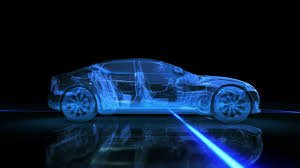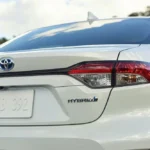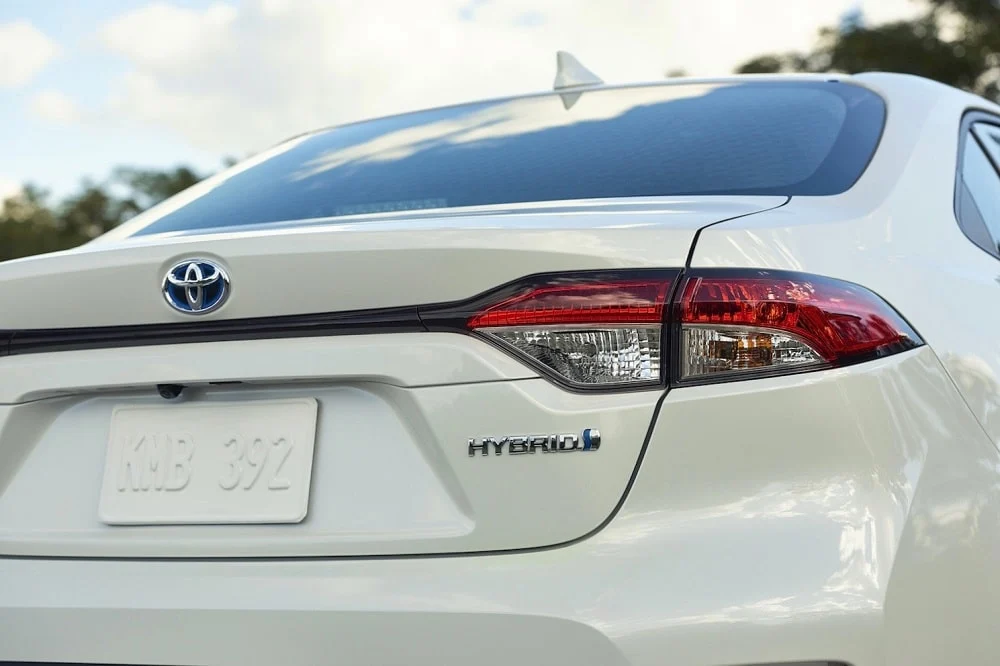The future of electric vehicles (EVs) is bright and full of promise. As technology advances and environmental concerns grow, more drivers are turning to electric vehicles for their daily commutes. With major automakers committing to zero-emission futures, the shift towards electric cars is gaining momentum. But what does the future hold for electric vehicles? This post explores the latest trends and innovations shaping the future of EVs.

Advancements in Battery Technology
One of the key factors driving the future of electric cars is the rapid advancement of battery technology. In the coming years, we can expect batteries that are lighter, more energy-efficient, and faster-charging. Lithium-ion batteries, which are currently the most common in EVs, have already seen improvements in energy density and charging times. However, new materials such as solid-state batteries are showing promise. These batteries are expected to offer higher energy storage, longer life cycles, and even quicker charging capabilities. As a result, EVs will become more affordable, practical, and efficient, addressing one of the most significant concerns of today’s electric car owners—range anxiety.
Expansion of Charging Infrastructure
As the number of electric vehicles on the road increases, so too will the demand for charging stations. The future of EVs depends on a robust, widespread network of charging infrastructure. Governments and private companies are investing heavily in expanding this network, making charging more accessible and convenient for drivers. Fast-charging stations are expected to become more widespread, significantly reducing the time it takes to recharge a vehicle. Wireless charging, where EVs are charged without plugging into a station, is also being explored, which could further simplify the charging process. These innovations will make electric vehicle ownership more seamless and reduce one of the primary barriers to widespread EV adoption.
Autonomous Electric Vehicles
The future of electric vehicles isn’t just about electrification—it’s also about autonomy. Self-driving technology is advancing rapidly, and when paired with electric powertrains, it could change the way we travel. Autonomous vehicles have the potential to reduce traffic congestion, increase road safety, and offer more efficient travel. The combination of electric and autonomous technologies could lead to fleets of driverless EVs, changing the traditional car ownership model. These vehicles would be integrated into shared transportation systems, offering on-demand services that reduce the need for private car ownership. As autonomous technology matures, we could see the rise of electric ride-sharing services and autonomous taxis, making transportation more sustainable and efficient.
Integration of Renewable Energy
Another exciting development in the future of electric vehicles is the integration of renewable energy sources. EVs powered by clean, renewable energy could significantly reduce carbon footprints and promote sustainable practices. Solar-powered charging stations, for example, are already in use in some regions, allowing EVs to be charged with solar energy. Additionally, the vehicles themselves could potentially be used as storage for renewable energy, feeding back into the grid when necessary. As the world continues to transition to renewable energy sources, the pairing of electric vehicles with solar, wind, and other renewable resources will play a key role in reducing global carbon emissions and promoting a more sustainable future.
Smart Connectivity and AI in EVs
The integration of smart technologies and artificial intelligence (AI) is rapidly transforming the automotive industry, and electric vehicles are no exception. In the future, we can expect EVs to be equipped with advanced AI systems that enable real-time data processing, predictive maintenance, and more personalized driving experiences. For example, AI could optimize route planning based on weather, traffic, and charging station availability, ensuring that drivers always get the most efficient route. Moreover, smart connectivity could enable features like remote diagnostics, allowing drivers to monitor their EV’s performance via smartphone apps. As EVs become smarter, they will offer greater convenience, safety, and user satisfaction.
Cost Reductions and Accessibility
Over time, the cost of electric vehicles is expected to decrease, making them more accessible to the average consumer. The initial purchase price of EVs has been a barrier for many potential buyers, but with advancements in manufacturing processes and economies of scale, prices are likely to fall. Government incentives and tax rebates are also expected to continue, further reducing the financial burden on consumers. Additionally, as more automakers enter the electric vehicle market, competition will drive innovation and cost reduction, ensuring that EVs are a viable option for a wider range of people. With these developments, EVs will no longer be seen as a luxury item but as an affordable, sustainable transportation option for all.
The Role of Government Policies and Regulations
Government policies and regulations will play a significant role in shaping the future of electric vehicles. Many countries have already set ambitious targets for EV adoption, with some aiming to phase out internal combustion engine (ICE) vehicles entirely within the next few decades. In addition to regulations that mandate emissions reductions, governments are investing in incentives such as rebates, tax credits, and subsidies to encourage EV adoption. In some regions, stricter emissions standards and low-emission zones are being introduced, further promoting the shift towards electric vehicles. Government support, combined with technological advancements, will accelerate the global transition to electric mobility.
Conclusion
The future of electric vehicles is incredibly promising, with innovations in battery technology, charging infrastructure, autonomous driving, and smart connectivity paving the way for a new era of transportation. As electric vehicles become more affordable, efficient, and accessible, their adoption will continue to grow. The integration of renewable energy and AI will further enhance the environmental and user experience benefits of EVs. With the support of government policies and advancements in technology, electric vehicles will play a crucial role in reducing carbon emissions and creating a more sustainable future. The future of mobility is electric, and it’s only just beginning.











